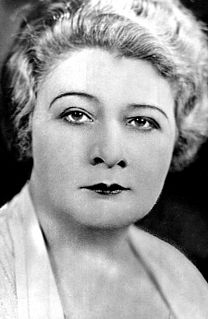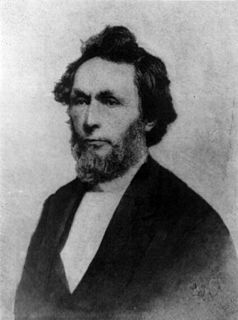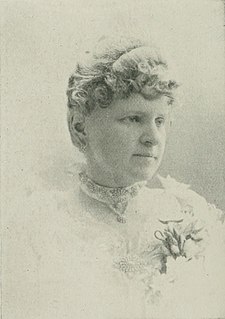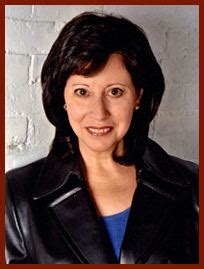A Quote by Kirk Douglas
On a crowded bus in Israel, a mother was speaking to her son in Yiddish. An Israeli woman reprimanded her. "You should be speaking Hebrew. Why are you talking to him in Yiddish?" The mother answered, "I don't want he should forget he's a Jew."
Related Quotes
Even though I loved the song [My Yiddish Momme] and it was a sensational hit every time I sang it, I was always careful to use it only when I knew the majority of the house would understand Yiddish. However, you didn't have to be a Jew to be moved by 'My Yiddish Momme.' 'Mother' in any language means the same thing.
It seems strange that the Mother of the race should be made the Slave of the Fruits of her Womb. It appears peculiar that she should have no privileges except those received through her son. It seems illogical that the God Principle of the Universe, in its infinite wisdom, should endanger the existence of the Race by making the Mother of it the weak, cringing underling of her husband.
I once picked up a woman from a garbage dump and she was burning with fever; she was in her last days and her only lament was: My son did this to me. I begged her: You must forgive your son. In a moment of madness, when he was not himself, he did a thing he regrets. Be a mother to him, forgive him. It took me a long time to make her say: I forgive my son. Just before she died in my arms, she was able to say that with a real forgiveness. She was not concerned that she was dying. The breaking of the heart was that her son did not want her. This is something you and I can understand.
So your strength is failing you? Why don't you tell your mother about it? ... Mother! Call her with a loud voice. She is listening to you; she sees you in danger, perhaps, and she-your holy mother Mary-offers you, along with the grace of her son, the refuge of her arms, the tenderness of her embrace ... and you will find yourself with added strength for the new battle.
I have another aspect of my career where I'm a scholar of Yiddish and Hebrew literature, and I'll say that when you study Yiddish literature, you know a whole lot about forgotten writers. Most of the books on my shelves were literally saved from the garbage. I am sort of very aware of what it means to be a forgotten artist in that sense.
For a mother the project of raising a boy is the most fulfilling project she can hope for. She can watch him, as a child, play the games she was not allowed to play; she can invest in him her ideas, aspirations, ambitions, and values - or whatever she has left of them; she can watch her son, who came from her flesh and whose life was sustained by her work and devotion, embody her in the world. So while the project of raising a boy is fraught with ambivalence and leads inevitably to bitterness, it is the only project that allows a woman to be - to be through her son, to live through her son.
Yiddish, originally, in Eastern Europe was considered the language of children, of the illiterate, of women. And 500 years later, by the 19th century, by the 18th century, writers realized that, in order to communicate with the masses, they could no longer write in Hebrew. They needed to write in Yiddish, the language of the population.
Just as a mother would protect with her life her own son, her only son, so one should cultivate an unbounded mind towards all beings, and loving-kindness towards all the world. One should cultivate an unbounded mind, above and below and across, without obstruction, without enmity, without rivalry. Standing, or going, or seated, or lying down, as long as one is free from drowsiness, one should practice this mindfulness. This, they say, is the holy state here.
Happy is that mother whose ability to help her children continues on from babyhood and manhood into maturity. Blessed is the son who need not leave his mother at the threshold of the world's activities, but may always and everywhere have her blessing and her help. Thrice blessed are the son and the mother between whom there exists an association not only physical and affectional, but spiritual and intellectual, and broad and wise as is the scope of each being.
Sometimes we adopt certain beliefs when we're children and use them automatically when we become adults, without ever checking them out against reality. This brings to mind the story of the woman who always cut off the end of the turkey when she put it in the oven. Her daughter asked her why, and her mother responded, "I don't know. My mother always did it." Then she went and asked her mother, who said, "I don't know. My mother always did it." The she went and asked her grandmother, who said, "The oven wasn't big enough."
If it is perfectly acceptable for a widow to disfigure herself or commit suicide to save face for her husband's family, why should a mother not be moved to extreme action by the loss of a child or children? We are their caretakers. We love them. We nurse them when they are sick. . . But no woman should live longer than her children. It is against the law of nature. If she does, why wouldn't she wish to leap from a cliff, hang from a branch, or swallow lye?
The good enough mother, owing to her deep empathy with her infant, reflects in her face his feelings; this is why he sees himselfin her face as if in a mirror and finds himself as he sees himself in her. The not good enough mother fails to reflect the infant's feelings in her face because she is too preoccupied with her own concerns, such as her worries over whether she is doing right by her child, her anxiety that she might fail him.




































